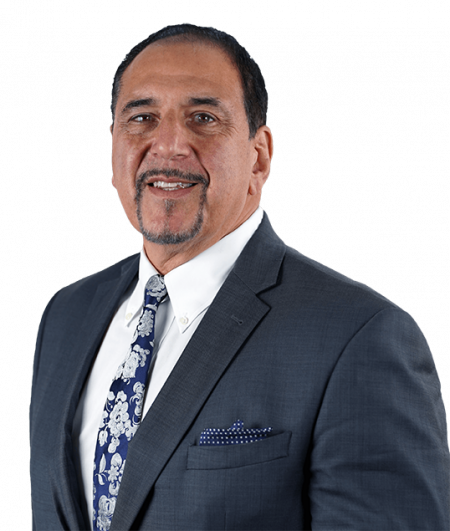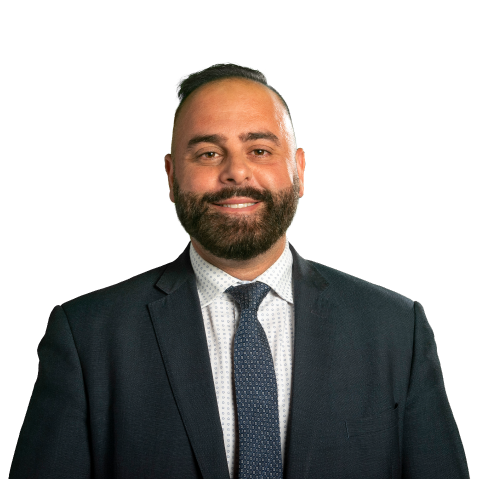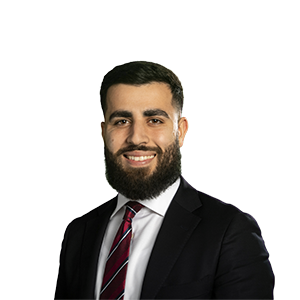Nursing home negligence lawyers
Nursing home abuse:
Your rights, our fight
At GMP Law, we understand the devastating impact that nursing home abuse can have on elderly residents and their families. Our team of experienced nursing home abuse lawyers are dedicated to protecting the rights of vulnerable seniors and helping victims receive the justice and compensation they deserve.
Your loved one may not be able to clearly communicate what is happening or may be too afraid to tell you openly. We will guide you through the process of opening a nursing home negligence case, so you can help protect those you love from poor treatment.
We provide compassionate support and expert legal representation to those affected by nursing home abuse and negligence across Australia.
Why Choose Gerard Malouf & Partners
Understanding nursing home abuse and negligence
Nursing home abuse and negligence occur when a facility or its staff fail to provide proper care, intentionally harm residents, or allow residents to be harmed through neglect. It’s a serious issue affecting many elderly Australians.
According to the Australian Royal Commission into Aged Care Quality and Safety, approximately 39.2% of people living in Australian aged care facilities experience elder abuse in the form of neglect. This alarming statistic underscores the importance of vigilance and prompt action when abuse is suspected.
Types of nursing home abuse
Abuse in nursing homes can take various forms:
- Physical abuse of elderly patients
- Emotional and non-verbal abuse
- Financial abuse
- Sexual abuse
- Abuse of patients with Alzheimer’s disease
- Neglect leading to malnutrition
- Failure to prevent and/or treat bedsores
- Improper use of restraints.
Learn more: Signs of elder neglect
We're here to help.
What is nursing home negligence?
Nursing home negligence is a failure to provide the expected standard of care, which can result in harm to residents. It can occur over an extended period or culminate in a single acute event.
Negligence may not always be immediately apparent, especially if your loved one has difficulty communicating or fears speaking up. Examples of nursing home negligence include:
Physical mishandling of elderly patients
Careless handling by a staff member can cause a nursing home resident to bang into a wall or a piece of furniture, slip, fall, or otherwise sustain an injury. Not only can the victim become physically wounded, mishandling can also lead to wrongful death.
General neglect and lack of compassion
Neglect of a resident concerning their personal and medical needs can include ignoring that they need help toileting or bathing, allowing them to stay unwashed or in dirty clothes, or not adhering to medication schedules for pain relief or other symptoms.
Medical dosage errors
This medical negligence can include the type of medication given to the resident, the dosage or number of medications given, the method of medication administration, the timing of medication administration, and failure to properly document all medications and administration processes.
Surgical aftercare errors
Improper aftercare can cause infection, sepsis, amputation, disability, or even death.
Failure to adequately treat infections
Untreated, even the most minor infections can swiftly escalate into life-threatening illnesses. Medical neglect such as failing to treat an infection (such as a UTI or an ear infection) can lead to extreme illness and even death.
Failure to provide diagnoses and referrals
Residents can be put at serious risk due to any failure to accurately diagnose life-threatening illnesses and provide timely referrals to appropriate medical specialists. This can be considered physical abuse.
Failure to provide adequate hygienic supervision
Many residents require supervision and help regarding bedding, personal care, showering and general hygiene. Failure on the part of the nursing home staff to provide oversight and assistance is a failure to discharge the duty of care.
Failing to detect malnutrition
Deliberate malnutrition of a resident is abuse, not neglect. However, if malnutrition isn’t deliberate, but goes unnoticed, a claim for negligence can be made.
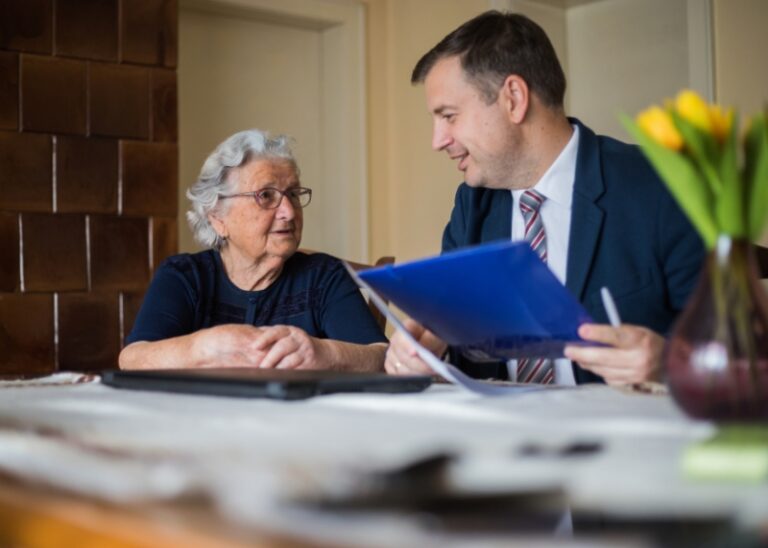
Eligibility for nursing home abuse compensation
If you or a loved one has suffered harm due to nursing home abuse or negligence, you may be eligible for compensation. To determine eligibility, it’s crucial to recognise the signs of abuse or neglect and gather evidence to support your claim.
Signs that may indicate potential abuse or neglect include:
- Unexplained injuries or bruises
- Sudden changes in behaviour or mood
- Poor hygiene or unsanitary living conditions
- Rapid weight loss or signs of malnutrition
- Bedsores or pressure ulcers
- Frequent infections
- Unexplained financial transactions
- Over-medication or under-medication
- Reluctance to speak in front of staff
- Use of physical restraints.
If you observe any of these signs or suspect abuse or negligence, it’s important to take action promptly. Document your observations, report your concerns to the appropriate authorities, and consult with a nursing home abuse lawyer to assess your eligibility for compensation. Our free initial consultation means you have nothing to lose by exploring your options.
While residents themselves can file claims, family members and legal guardians may also be eligible to seek compensation on behalf of the victim.
Factors affecting compensation
Many factors can influence the amount of compensation you may receive:
- Severity of injuries or harm caused
- Long-term impact on your health and quality of life
- Financial losses, including medical expenses and lost wages
- Pain and suffering endured.
At GMP Law, we’re committed to helping you understand your rights and options. We’ll work tirelessly to ensure you receive the maximum compensation you’re entitled to under the law.
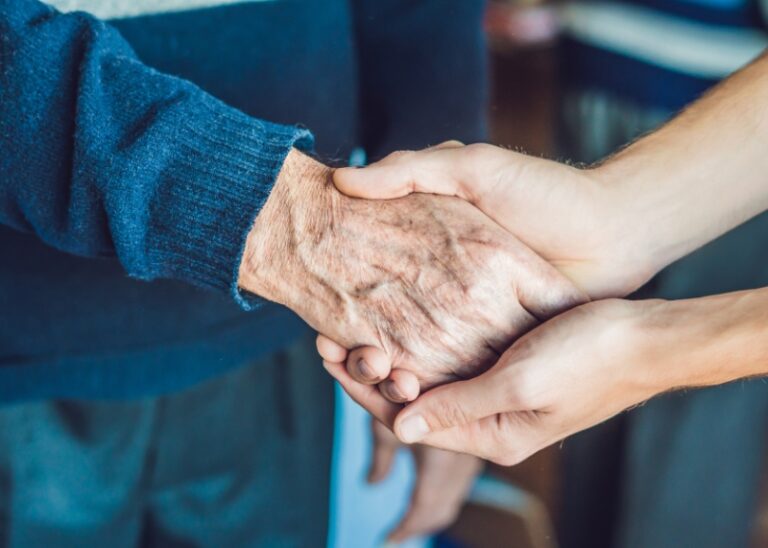
No Win No Fee
Fee transparency that you can trust
At GMP Law, we’re committed to ensuring you have nothing to lose.
If we don’t win your case, you won’t pay a cent for our services. This means you can focus on healing without worrying about legal costs.
How it works
No upfront costs
No contingency fee
We’ll only charge you if we win.
We maintain integrity by carefully evaluating each case. If we believe it’s unlikely to result in compensation or if the costs outweigh the benefits, we won’t take it on.
This commitment to our client’s best interests, as well as fee transparency, sets us apart from other law firms.
With a 98% success rate and over $4 billion in settlements, we’re dedicated to delivering exceptional results for our clients.
Frequently asked questions about nursing home abuse claims
What are the time limits to claim for nursing home abuse and negligence?
There is typically a three-year statute of limitations from the date of discovery of the negligence, and up to 12 years from the date the negligence occurred.
What is the difference between nursing home abuse and negligence?
While both can result in harm to residents, abuse is typically intentional, while negligence is usually unintentional but still results in substandard care. Not all harm is caused by negligence or abuse – some injuries may be purely accidental and non-preventable.
How do you prove nursing home negligence?
- Document incidents: Keep a detailed record of any incidents or signs of negligence you observe or suspect. This can include instances of inadequate care, unexplained injuries, medication errors, poor hygiene, neglect, abuse, or any other relevant issues. Note dates, times, locations, and any individuals involved.
- Gather medical records: Request and obtain copies of the resident’s medical records from the nursing home. These records can help establish the level of care provided and identify any lapses or deviations from the expected standards.
- Collect eyewitness statements: Speak to other residents, their families, and staff members who may have witnessed incidents of negligence or have information about substandard care. Document their statements and gather their contact information as potential witnesses.
- Consult with an personal injury lawyer: Seek legal advice from a lawyer who specialises in nursing home negligence or elder law. They can evaluate your case, provide guidance, and help you navigate the legal process.
- Your lawyer will engage experts: In some cases, it may be necessary to consult medical experts who can review the medical records and provide professional opinions regarding the level of care provided and whether negligence occurred. At GMP Law, we can assist our clients with gathering expert advice.
- Document physical evidence: Take photographs or videos of any visible injuries, unsanitary conditions, inadequate facilities, or any other evidence that supports your claim.
- Report the negligence: File a complaint with the appropriate authorities, such as the state’s Department of Health or a regulatory agency that oversees nursing homes. They may conduct an investigation and take enforcement actions if necessary.
- Preserve communication records: Keep copies of any correspondence, emails, or other communications between you and the nursing home administration or staff regarding incidents or concerns related to negligence. These records can serve as evidence of your attempts to address the issue.
- Consider legal action: If you believe you have substantial evidence of nursing home negligence, consult with your attorney about filing a lawsuit. They can guide you through the legal process, gather additional evidence, and represent your interests in court.
GMP Law offers free initial consultations to help individuals determine if they have a viable case. Our experienced lawyers can guide you through the complex process of evaluating your situation.
Who can file a nursing home abuse lawsuit?
The resident, their family members, or a legal guardian can typically file a lawsuit. If the resident has passed away, their estate may be able to file a wrongful death lawsuit.
What should I do if I suspect nursing home abuse?
First, ensure the resident’s immediate safety. Report your concerns to the nursing home management and relevant authorities. Document everything, gather evidence, and consult with a nursing home abuse lawyer.
Can I move my loved one out of the nursing home during a lawsuit?
Yes, if you believe your loved one is in immediate danger, you should prioritise their safety and well-being. Moving them will not negatively impact your legal case.
Justice for victims of nursing home abuse and negligence
At GMP Law, we’ve successfully represented clients from various walks of life, securing substantial compensation for those who have suffered from nursing home abuse.
$116,500 settlement for nervous shock claim against an aged care home
Background
Our client’s father passed away in an aged care home after a diagnosis of sepsis, allegedly resulting from a poorly inserted/removed catheter.
The challenge
The nursing home was initially reluctant to disclose records relating to the deceased’s care and treatment.
GMP Law’s approach
- Persisted in seeking discovery of relevant documents
- Filed a summons for a court order to obtain the necessary records
- Obtained supportive evidence from an expert psychiatrist on short notice
- Argued that the plaintiff suffered clinically significant levels of anxiety and depression (nervous shock) due to the negligence resulting in his father’s death.
Outcome
Successfully negotiated a settlement of $116,500 for our client’s subsequent anxiety and depression resulting from his father’s death.
Real cases, real results
The compensation claim process: Your journey with GMP Law
Initial consultation
Evidence gathering
Claim submission
Negotiation
Court representation
Ongoing support
Our promise to you
Why trust GMP Law with your nursing negligence claim?
At GMP Law, we handle your claim so you can concentrate on what matters most: your recovery.
We commit to
Clear, straightforward communication
Regular updates on your case as it progresses
A personal injury lawyer who understands your unique situation
Vigorous negotiation to maximise your compensation
Empathetic support throughout your journey
Specialised knowledge
Our accredited personal injury lawyers have years of experience in accident injury claims, giving us deep insight into the nuances of these claims.
Proven track record
Difficult case policy
Australia-wide assistance
With lawyers across the country, we’re here to help, wherever you are.
Meet the medical negligence team
Meet some of the diverse and dynamic compensation lawyers who support our clients with their medical negligence claims.
We're here to help maximise your compensation
Book your free, confidential consultation with one of our personal injury lawyers using the form below, or simply call us 1800 004 878.
